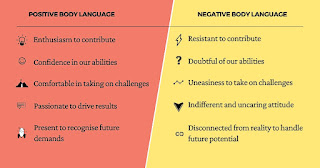Tips for improving Communication Skills:
Creating strong communication skills is essential to building a successful career. Be that as it may, your communication skills assume a key part in your private life. Learn about the most popular communication skills and how to develop them further.
With solid communication skills, you can undoubtedly further improve communication in the work environment. Look at Top Communication Channels for Your Business and figure out how to speak with the advanced worker in the present computerized age.
There are many different communication skills to have; But here we will focus on the 9 main communication skills.
These 9Communication skills are very important for effective communication in the working Place in private life.
Tips for better Communication:
1. Be an active listener:
People need to realize that they are being heard. Truly pay attention to what the other person is talking about, rather than forming your reaction. Ask for clarification to keep away from misconceptions. At that point, the individual addressing you should be the main individual in your life. One more significant point is to have each discussion in turn.
This really means that if you are addressing somebody on the telephone, don’t answer an email, or send a message simultaneously. The other individual will realize that she doesn’t stand out.
2. Role of body language:
Body language is the utilization of actual ways of behaving, articulations, and mannerism to communicate non-verbally. Non-verbal ways of behaving can permit individuals to be at ease, and form trust and connection with others. In any case, they can likewise confuse others, produce pressure, and even establish an uncomfortable climate. Being able to observe one's body language has forever been fascinating for me actually, as I have been in circumstances where, in spite of what one individual says, their body language conveys something else or the other way around.
Body language can influence our words as it can emphasize our message, go against our words, support our assertion, substitute the meaning of what we are trying to say, and complement what we are trying to say. Non-verbal communication is something normally regular and is frequently done naturally as opposed to intentionally.
As humans, we communicate our thoughts in various ways, including verbal, and vocal (This refers to the tone, speed, and expression. One's manner of speaking can demonstrate different feelings including mockery, anger, friendship, confidence, fear, and so on), and nonverbal. Non-verbal Communication constitutes the majority of our overall communication.
How do improve Body Language for better communication?
3. Be concrete and clear:
Communication is principally about word choice. Furthermore, with regards to word decision, toning it down would be ideal.
The way to strong and persuasive communication — whether composed or spoken — is clearness and, whenever the situation allows, brevity.
Prior to participating in any type of communication, characterize your objectives and your crowd.
Engaging in any form of communication about what you need to convey and why will help ensure that you include all necessary information. It will also help you eliminate irrelevant details.
Avoid using unnecessary words and excessively elegant language, which can distract from your message.
And keeping in mind that repetition might be vital now and again, be sure to utilize it carefully and sparingly. Repeating your message can guarantee that your crowd gets it, however, an excessive amount of repetition can make them block you out completely.
4. Stress management:
In small quantities, stress can be exceptionally helpful and empowering for work. However, when the stress becomes steady and totally starts to produce results, it can influence communication, clearness of Opinion, and appropriate behavior and action.
At the point when you are under stress you might misunderstand others, convey confusing nonverbal messages, and do funny patterns of behavior.
How frequently did you feel stressed during a conversation with your companions or partners and afterward say or do something you regretted later?
In the event that you improve stress management skills, not exclusively will you stay away from these resulting laments, yet you can likewise impact the other individual you are going into a conflict.
5. Friendliness:
Friendly traits like genuineness and graciousness can foster trust and understanding while communicating at work. Attempt to speak with an uplifting outlook, keep a receptive outlook and ask questions to assist you to understand where they’re coming from. Little signals, for example, asking somebody how they’re doing, smiling as they talk, or offering praise For work Well-done can help you foster productive relationships with colleagues and managers.
You can practice friendliness by recalling little, inner thoughts about your coworkers or past discussions. For instance, if a coworker lets you know their kid’s birthday is soon and you interface with them some other time, you could ask them how the birthday celebration went.
6. Confidence:
In the working environment, individuals are bound to answer thoughts that are presented with confidence. There are numerous ways of seeming sure, including by visually connecting while you’re tending to somebody, sitting up straight with your shoulders open, and planning quite a bit early so your considerations are cleaned and you’re ready to respond to any inquiries. Confident communication is valuable at work as well as during the new employee screening process.
Effective Communication Skills to increase your confidence.
7. Empathy:
It is also beneficial when speaking with customers in certain types of customer-facing roles.
The objective here is to comprehend where the other individual is coming from – and respect their views, regardless of whether they are altogether different from your own.
8. Respect:
Sympathy leads to the following communication skill, respect.
Assuming you respect the thoughts and opinions of others, they will be bound to speak with you.
Undivided attention or basically using the name of the person you are addressing can both be Effective.
Ensure that when you type messages, you don’t write in a way that is insincere.
9. Give and Receive Feedback:
Giving and receiving feedback is essential and one of the central skills for effective communication. Giving feedback empowers a person, and likewise receiving two or three assists you to view and working on your weak points.
You probably won’t get all the feedback expressing how a great person you are. In some cases, they might be difficult to read, however you should act emphatically on them to be a better communicator.
Likewise, try to understand the issues that are making people give the feedback they are giving. You can likewise get some information about what it means in that you can’t understand the feedback well.
Conclusion:
The above-specified are the top 9 skills for effective communication. Developing these skills can help you to communicate effectively with others.
More About:
.png)





.jpg)
.jpg)


Comments
Post a Comment